The Memoir Land Author Questionnaire #112: Candace Opper
"Be relentless. Be okay with the fact that not everyone will like what you’re doing. Embrace unlikability. Insist that your book needs to be in the world."
Since 2010, in various publications, I’ve interviewed authors—mostly memoirists—about aspects of writing and publishing. Initially I did this for my own edification, as someone who was struggling to find the courage and support to write and publish my memoir. I’m still curious about other authors’ experiences, and I know many of you are, too. So, inspired by the popularity of The Oldster Magazine Questionnaire, I’ve launched The Memoir Land Author Questionnaire.
Here’s the 112th installment, featuring , author of Certain and Impossible Events. -Sari Botton
P.S. Check out all the interviews in The Memoir Land Author Questionnaire series.
Candace Jane Opper is a writer, a mother, a visual artist, and a numbers person. She is the author of Certain and Impossible Events, selected by Cheryl Strayed as the winner of a Kore Press Memoir Award and featured in NPR’s 2021 “Books We Love.” Her writing has appeared in Guernica, Longreads, Narratively, Literary Hub, The Normal School, Brevity, Creative Nonfiction, Bright Wall/Dark Room, and Vestoj, among others. Having vowed to never make writing her day job, she pieces together a salary by way of her more sought after skills, mainly bookkeeping. Candace grew up in the woodsy marshlands of Southern Connecticut and lived in Providence, Rhode Island and Portland, Oregon, before landing in Pittsburgh, Pennsylvania, where she lives with her husband, writer Patrick McGinty, and their son. [This questionnaire is accompanied by various photo ephemera and primary source materials.]
—
How old are you, and for how long have you been writing?
44. I’ve been identifying as a writer for fifteen years or so, but writing for at least thirty.
What’s the title of your latest book, and when was it published?
Certain and Impossible Events, published by Kore Press in 2021.
What number book is this for you?
Number one!
When I was thirteen, a boy I had a crush on killed himself, a week after Kurt Cobain’s death. My heart was broken, of course, but greater than that was my intellectual preoccupation with the event, with the mysteries of suicide, with the fact that the boy would be inextricably linked to the death of a rock star.
How do you categorize your book—as a memoir, memoir-in-essays, essay collection, creative nonfiction, graphic memoir, autofiction—and why?
The book is a mashup of memoir and research, but I generally call it a long, epistolary essay. I guess that’s a literary way of saying that it’s kind of a love letter.
What is the “elevator pitch” for your book?
Fusing memoir with history, science, and pop culture, Certain and Impossible Events investigates the astonishing scope of suicide in America, through the lens of a woman fixated on a middle school classmate’s death.
What’s the back story of this book including your origin story as a writer? How did you become a writer, and how did this book come to be?
When I was thirteen, a boy I had a crush on killed himself, a week after Kurt Cobain’s death. My heart was broken, of course, but greater than that was my intellectual preoccupation with the event, with the mysteries of suicide, with the fact that the boy would be inextricably linked to the death of a rock star.
I started writing within a matter of hours of hearing the news, in an attempt to both document the already disappearing details of the boy’s existence and to begin unraveling (in vain) the unanswered questions around his death.
And I wrote, and I wrote, and I wrote. My life evolved as lives do, but the effort to document this experience remained a constant.
At thirty (a mere seventeen years into the venture) I enrolled in a creative nonfiction MFA program, the primary purpose of which was to distill my almost two decades of obsessive writing into something cohesive, analytical, tonally consistent.
This is when I began researching suicide, wanting to better understand my experience within a larger context. What I found considerably changed the direction of the book. My research opened up a complex network connecting psychology, sociology, pop culture, and history, governed largely by people not unlike myself: driven, often obsessively, by grief.
The end result is a kind of narrative of my obsession, from a thirteen-year-old girl writing in a Snoopy diary to a thirty-year-old woman writing on the infamous bench outside Kurt Cobain’s former Seattle home. I am a relentless person, so I always knew I would make something of this evolving story, but I could never have predicted its ultimate shape.
What were the hardest aspects of writing this book and getting it published?
Over the course of actively writing this book, my relationship to the subject matter constantly evolved, demanding that I write with the tide of that evolution. I wanted the writing to convey the rawness and sometimes naivete of that real-time experience while also communicating that I was a narrator who could be trusted. This was a difficult balance to achieve, and I spent years tweaking and rearranging the text in order to make that work.
As for publishing, the response I got most often from agents and small presses was the complimentary rejection: “I love your writing, but I can’t sell this.” (I feel this response sums up the problem with the publishing industry as a whole.) A couple publishers offered to work with me on making the book either a work of solely research or exclusively a memoir, but I felt it was essential to the story to combine the two, so that was a deal-breaker for me.
Eventually I just got lucky and was selected as the winner of a small press manuscript contest. Honestly if that hadn’t happened, I’d probably still be working on this book.
Over the course of actively writing this book, my relationship to the subject matter constantly evolved, demanding that I write with the tide of that evolution. I wanted the writing to convey the rawness and sometimes naivete of that real-time experience while also communicating that I was a narrator who could be trusted. This was a difficult balance to achieve, and I spent years tweaking and rearranging the text in order to make that work.
How did you handle writing about real people in your life? Did you use real or changed names and identifying details? Did you run passages or the whole book by people who appear in the narrative? Did you make changes they requested?
The boy’s family kindly participated in an interview for the book and requested that I change his name. At that point, it made the most sense to change the names of everyone involved, as though we were the TV movie versions of ourselves. I also rendered the geographic location vague, regional at best. If you went to middle school with me, you’d likely be able to identify the boy (and many have), but he’s otherwise untraceable. That is, in some ways, the advantage of writing about someone who died before the internet became what it is today.
Who is another writer you took inspiration from in producing this book? Was it a specific book, or their whole body of work? (Can be more than one writer or book.)
All of Sarah Manguso’s nonfiction writing, Maggie Nelson’s Bluets, A. Alvarez’s The Savage God, Lydia Davis’s The End of the Story, so much of David Vann’s writing, Édouard Levé’s Suicide, Johanna Adorján’s An Exclusive Love, Cheryl Strayed’s essay “The Love of My Life.”
What advice would you give to aspiring writers looking to publish a book like yours, who are maybe afraid, or intimidated by the process?
Be relentless. Be okay with the fact that not everyone will like what you’re doing. Embrace unlikability. Insist that your book needs to be in the world.
What do you love about writing?
I love that it’s essentially free and requires few (if any) supplies.
What frustrates you about writing?
That I can’t pair my published writing with a score/soundtrack.
What about writing surprises you?
The whole process feels like a surprise. Like unwrapping a present to find another gift-wrapped present inside, and another one inside that, and on and on.
The response I got most often from agents and small presses was the complimentary rejection: “I love your writing, but I can’t sell this.” (I feel this response sums up the problem with the publishing industry as a whole.) A couple publishers offered to work with me on making the book either a work of solely research or exclusively a memoir, but I felt it was essential to the story to combine the two, so that was a deal-breaker for me. Eventually I just got lucky and was selected as the winner of a small press manuscript contest. Honestly if that hadn’t happened, I’d probably still be working on this book.
Does your writing practice involve any kind of routine, or writing at specific times?
No specific times, but I often pair specific pens and notebooks to projects, as though the utensils are some kind of muse.
Do you engage in any other creative pursuits, professionally or for fun? Are there non-writing activities you consider to be “writing” or supportive of your process?
I started making zines during the pandemic, and that has been a real joy. Connecting with people via printed matter is such a refreshing alternative to the emptiness of social media. Plus it’s a great medium for dropping my random pieces of writing that don’t otherwise have a home.
What’s next for you? Do you have another book planned, or in the works?
I’m working on a coming-of-age novel right now, which is both fun and terrifying. I’ve never written fiction and spent many years thinking it was impossible for me to do so. But then I started thinking of fiction as just nonfiction that I’m tip-toeing my way out of, and that makes more sense to my brain than coming up with a story out of thin air. I mostly feel like I have no idea what I’m doing, but that’s humbling in a good way. After spending ten years writing a book about suicide, it’s restorative to be able to write something, dare I say, fun.






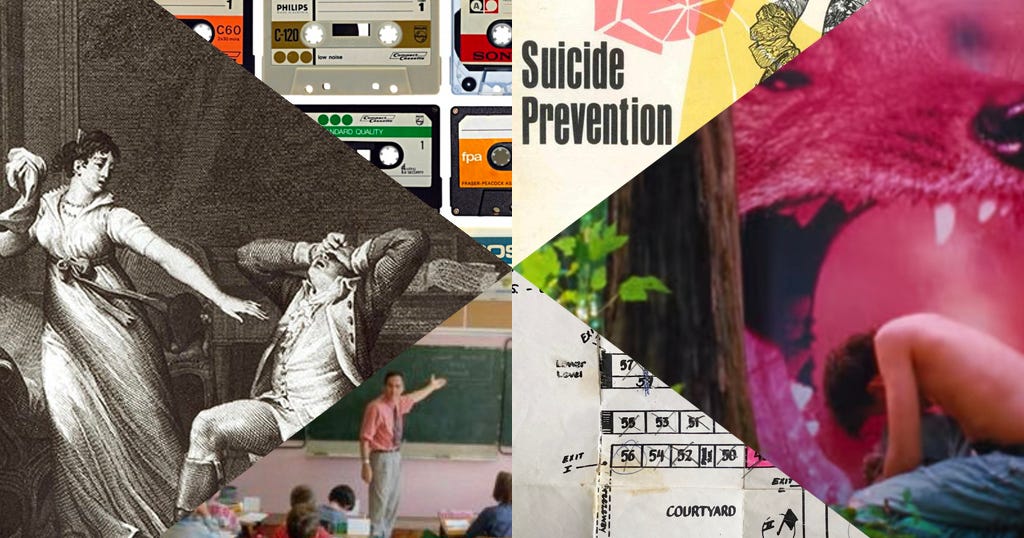

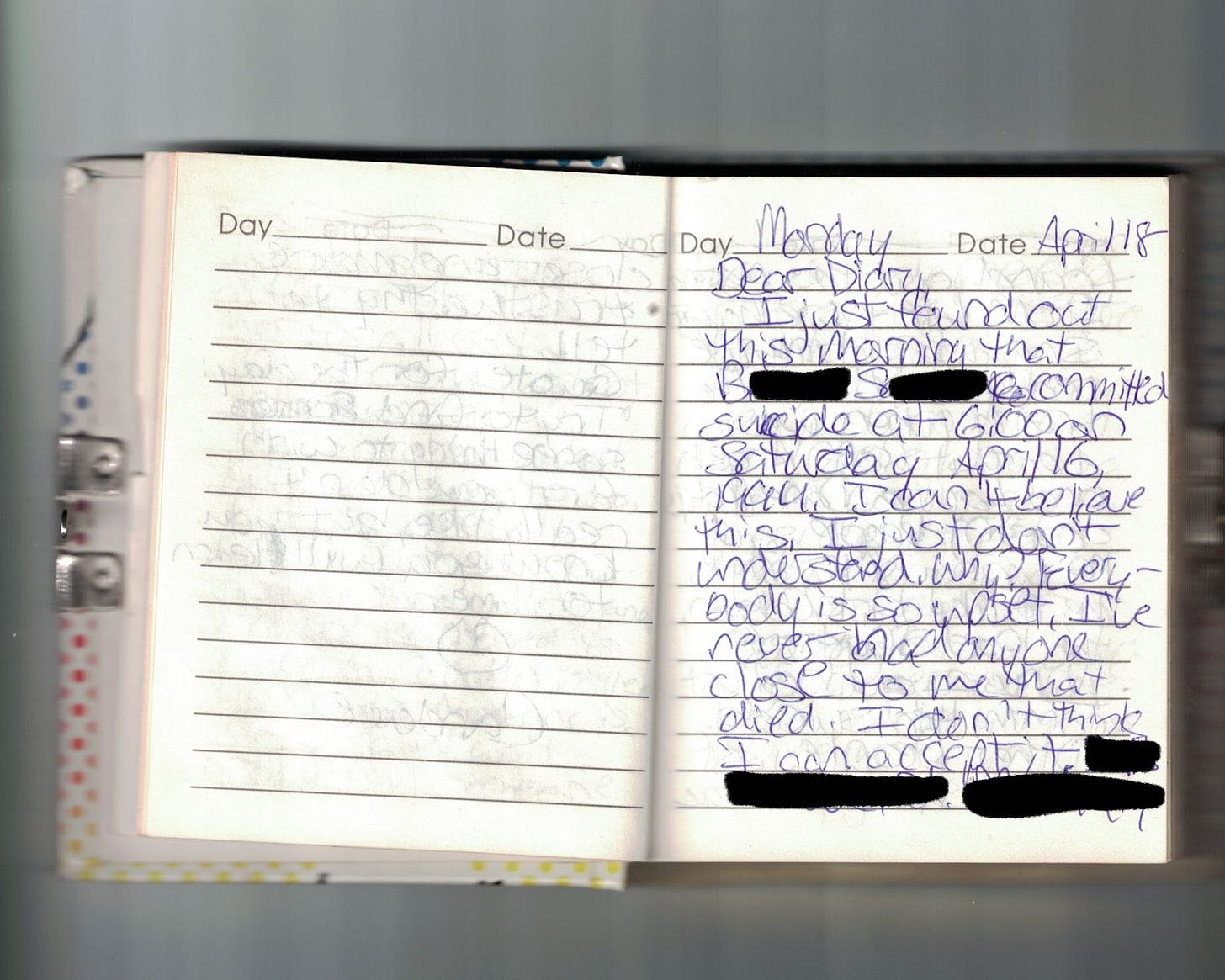
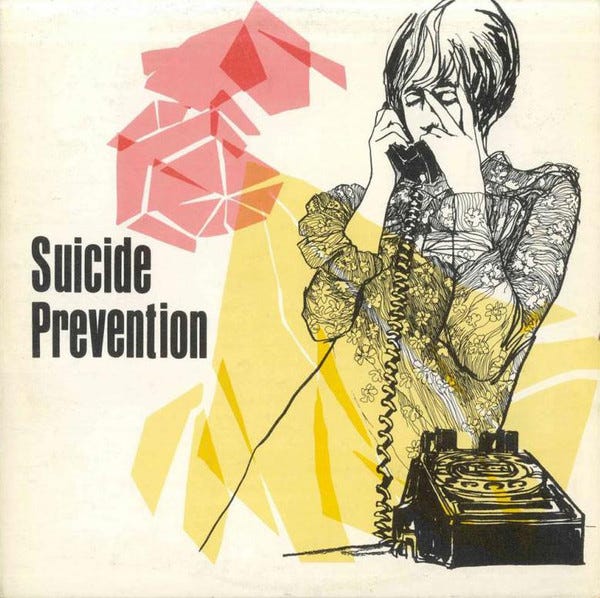
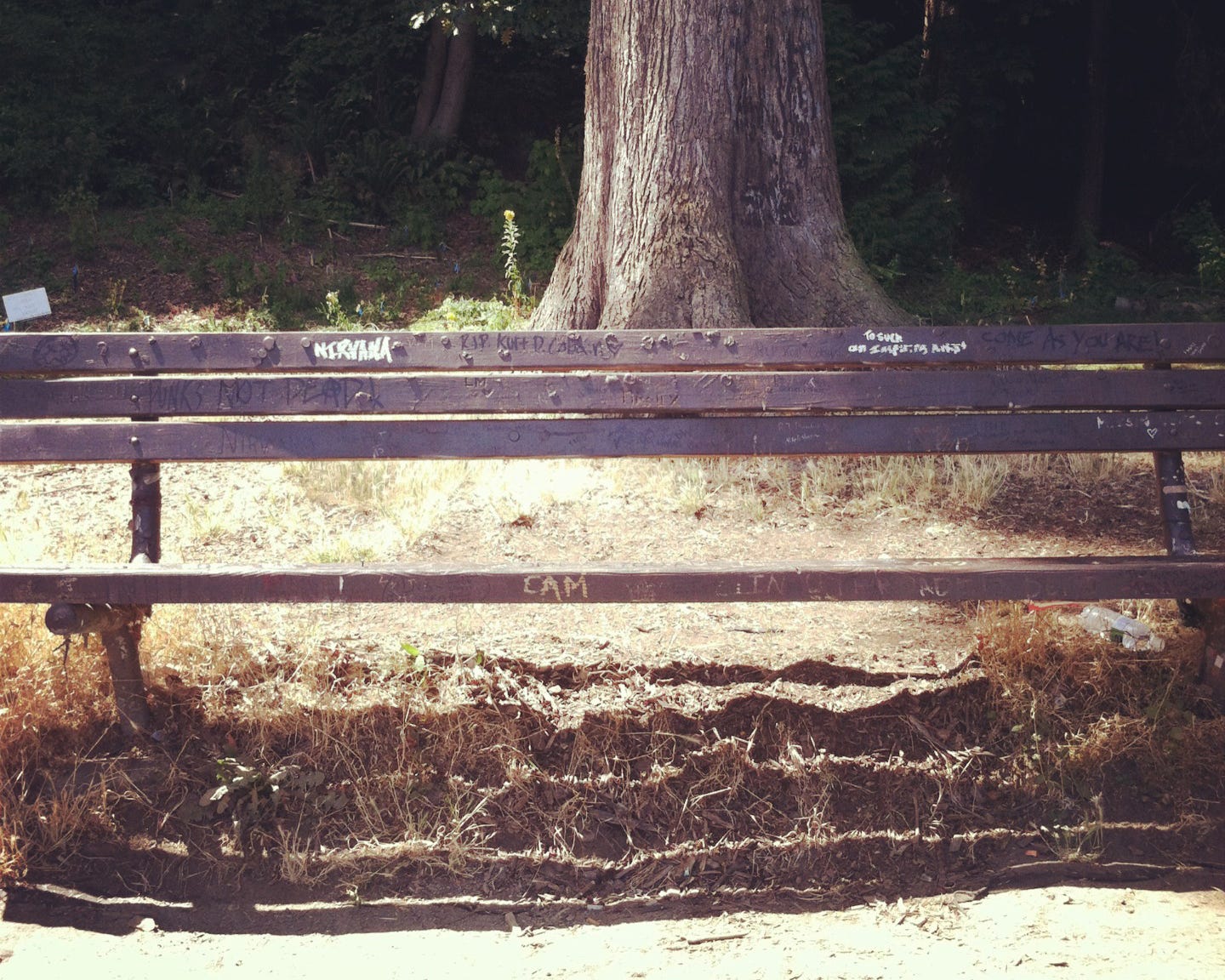
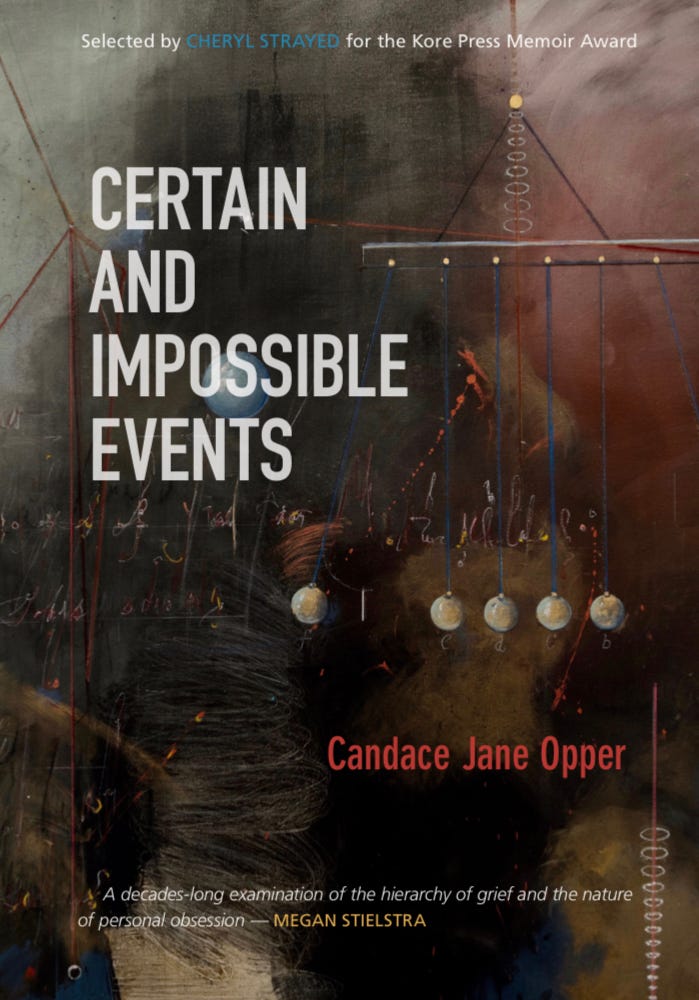
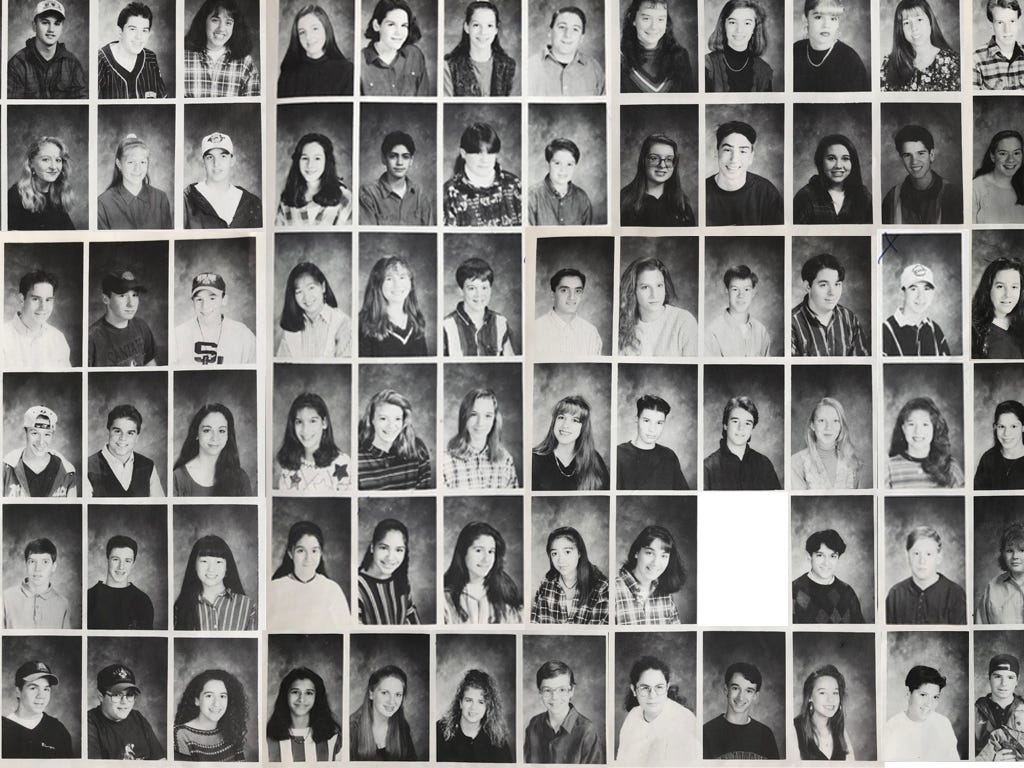

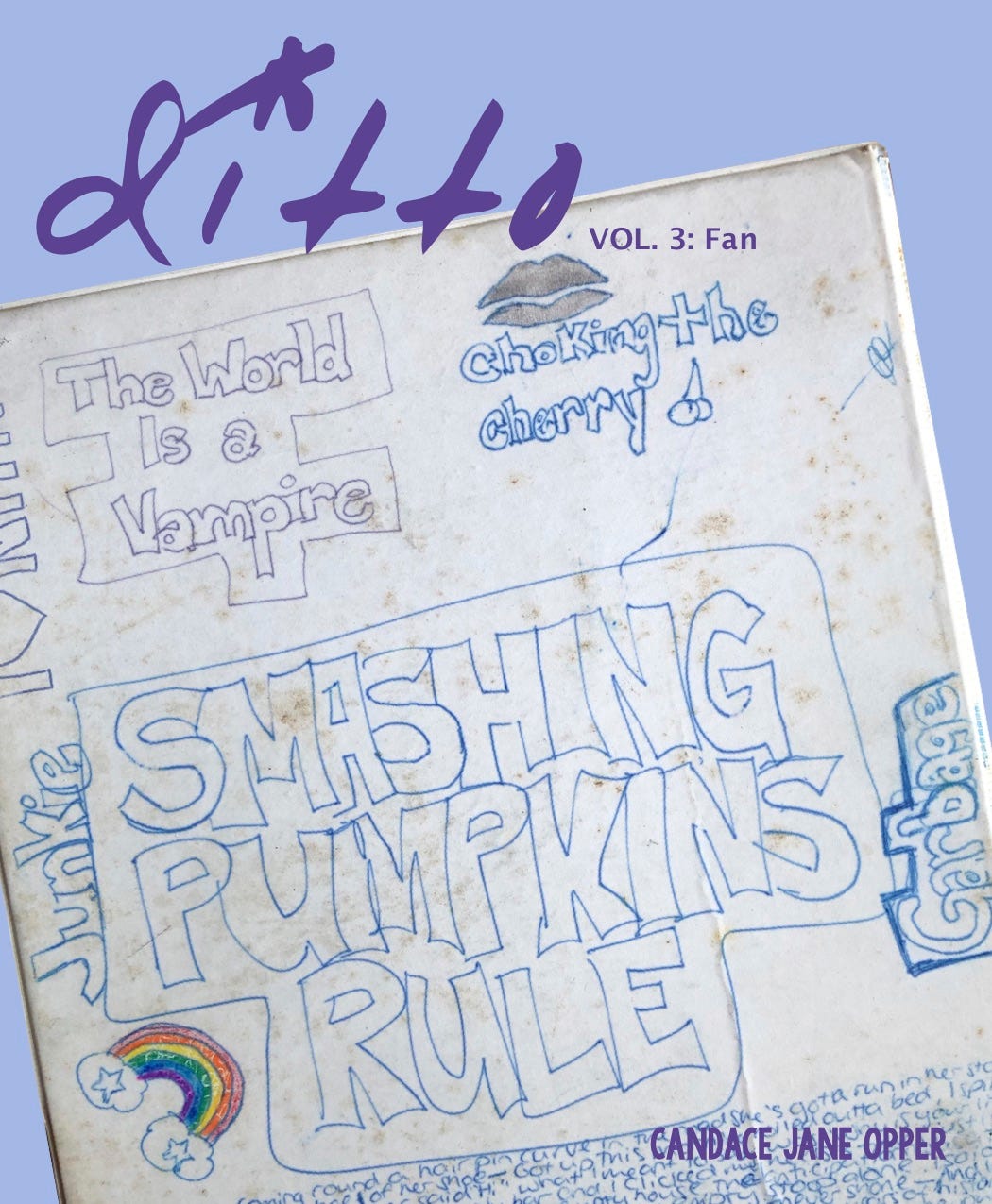

One of my all-time favorite memoirs; Candace is a huge inspiration for me :)